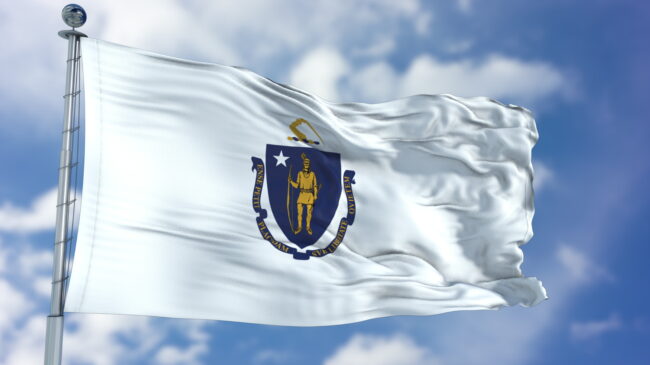Massachusetts, like many states, faces a mental healthcare crisis. Eighteen percent of adults in the state report receiving a depression diagnosis, according to a 2020 report from the Centers for Disease Control and Prevention. Massachusetts voters have the opportunity to legalize access to a great mental health tool: psilocybin.
Psilocybin, a psychedelic drug, has shown extraordinary promise in treating severe depression and dependency on alcohol or cigarettes—among other behavioral illnesses. Access to psilocybin will likely be on the state’s November ballot through an initiative titled The Natural Psychedelic Substances Act. The ballot initiative would create a regulated framework for legal, professionally facilitated psychedelic services and therapy.
The act would also guide regulators in determining how to license professional guides and regulate the manufacture and sales of psychedelic substances and infused products. Residents would face no criminal penalties under state law for growing or possessing approved psychedelics or participating in non-commercial psychedelic gatherings for spiritual and mental health purposes.
Many of the state’s public health institutions now have teams dedicated to psychedelics. In 2021, Massachusetts General Hospital opened the Center for Neuroscience of Psychedelics in collaboration with Harvard University and a private pharmaceutical company, Atai Life Sciences, which is currently taking a synthetic version of psilocybin through clinical trials.
The research of Massachusetts General aims to explore exactly how psilocybin is so effective in treating severe depression. However, this will be a long, arduous academic process that will take many years before the research is published in an academic journal, approved by government agencies, and then promulgated through doctor training seminars to ultimately help patients.
The ballot initiative would allow Massachusetts to get ahead of the notoriously slow and costly process of academic research and pharmaceutical approval through the Food and Drug Administration. Multiple pharmaceutical companies have sponsored patented derivatives of psilocybin in FDA-supervised clinical trials, but the initiative could make naturally occurring therapies available immediately.
Eight cities in Massachusetts have already designated enforcing bans on psychedelics as the lowest priority within their jurisdictions. The ballot initiative would go further by removing some criminal penalties under state law and establishing a regulated marketplace for therapeutic use. Oregon and Colorado have already passed similar initiatives that Massachusetts could mimic.
Oregon’s regulated market is already operational. Oregon Public Broadcasting recently interviewed Vivian Anderson, an 88-year-old woman with post-traumatic stress disorder who went through a legal psilocybin treatment in Oregon. Anderson exclaimed, “I’m just happy now that my daily life feels so whole, feels so peaceful and calm. I’m not carrying around this horrible feeling of anxiety.”
Opponents of psychedelics in Colorado initially worried that legalization could lead to widespread drug misuse. However, a Reason Foundation examination found that crime and hospitalization data in the year following Colorado’s legalization does not back up these fears. Hallucinogens represent a mere 0.3% of drug-related hospitalizations in Colorado—a trend that has not changed in the year since possession was legalized.
There is little evidence in Massachusetts that psychedelic use presents a substantial public health or safety issue. Official Massachusetts crime statistics show there were only 153 hallucinogen-related crimes in 2021 and 134 in 2022. In 2022, hallucinogens represented just 1.7% of drug-related crime, while narcotics, such as heroin, represented 68% (5,534 incidents).
Psychedelics are just one prong in a complex mental health strategy. However, clinical research in the past few years shows psychedelics may have remarkable effectiveness in helping individuals overcome a wide range of mental health problems. Massachusetts can and should be the next state to offer this transformative approach to tackling the mental health care crisis.
